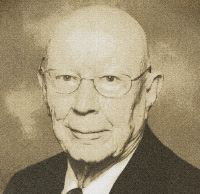2021 Alumni Award Recipients
The alumni receiving these awards have provided great service to the veterinary field, distinguished themselves in their careers, and, in doing so, enhanced the reputation and honor of the MSU College of Veterinary Medicine. For additional information on the College’s alumni awards, visit the 2021 Achievement Awards page.
Distinguished DVM Alumni Award, Practitioner

Jennifer Welser, DVM (’96), DACVO
Dr. Jennifer Welser received her DVM degree from MSU in 1996. She went on to complete a rotating internship at Auburn University. She then became board certified in ophthalmology following her residency in a private practice setting and comparative program at the University of Illinois – Chicago.
In her current role as global chief medical officer at Mars Veterinary Health (MVH), Welser sits on both the North American and International and Diagnostics MVH leadership teams, where she provides perspective on behalf of more than 9,000 MVH veterinarians across the globe. She partners with chief medical officers of private practices to oversee medical quality and medical operations at all MVH practices including Banfield Pet Hospitals, BluePearl Specialty and Emergency Pet Hospitals, and VCA Animal Hospitals in the US; Linnaeus in the UK; and AniCura in Europe, as well as Antech Diagnostics in Asia.
Prior to her role at MVH, Welser was a private practice owner in California for five years, multispecialty practice medical director in New York City, and chief medical officer at BluePearl Veterinary Partners. She currently sits on the board of directors for the North American Veterinary Community’s Veterinary Innovation Council.
In 2021, Welser was the College of Veterinary Medicine’s commencement speaker.

Frederick A. Zydeck, DVM (’66)
Dr. Frederick Zydeck earned his DVM degree from MSU in 1966. After graduation, he worked for the Wayne State University School of Medicine in Detroit, Michigan, during which time he held the titles of university animal care officer, director of the Division of Laboratory Animal Resources, and chairman of the Department of Comparative Medicine. While at Wayne State University, he applied for and was awarded a grant from the National Institutes of Health to establish a diagnostic laboratory for animals within the School of Medicine. He also taught graduate courses as an assistant professor.
After six years at Wayne State University, Zydeck went into private small animal practice. He founded the Nine Mile Road Veterinary Clinic in Southfield, Michigan. By the time he retired in 1999, Zydeck had owned and operated five successful small animal practices in Southeast Michigan. While in practice, Zydeck consulted with numerous institutions in Southeast Michigan regarding their biomedical research. He has served in various leadership capacities with veterinary organizations, including as a founding member of the First Veterinary Clinics of Michigan Group and Allied Veterinary Emergency Service. Since retirement, Zydeck has worked with Veterinary Practice Sales Group to help veterinarians retire from practice and sell their businesses.
As class president of the DVM Class of 1966, Zydeck has organized a class reunion every five years since graduation, a responsibility that he has held in great honor.
Distinguished DVM Alumni Award, Non-Practitioner

Samuel Wallace Tate, DVM (’67), MPH
Dr. Samuel Tate earned his DVM degree from MSU in 1967. Following graduation, Tate entered active duty in the Air Force Veterinary Corps, which began a long career of providing veterinary services in the military. He served many assignments all over the world, which included the following: chief of Veterinary Services to Tuy Hoa Air Base in Vietnam; stock points support to the Defense Logistics Agency at the United Kingdom Subsistence Center (UKSC) in London, England; posts at the Naval Supply Depot (NSD) in Guam and the Naval Supply Center (NSC) in Charleston, South Carolina; and chief of Environment Health Services at Ramstein Air Base in Germany and Seymour Johnson Air Force Base in North Carolina. At UKSC, NSD, and NSC, Tate also served as chief of Veterinary Services of the Air Force and Naval Hospital, and advised the medical commanders on matters related to zoonotic diseases.
In 1981, Congress directed that the Army Veterinary Corps be the executive agent for all veterinary activities in the Department of Defense. Tate was selected to represent the Navy surgeon general, commander of Navy Supply Systems Command, and the Marine Corps deputy chief of staff for Installations and Logistics on the committee chaired by the Deputy Secretary of Defense for Health Affairs. He was responsible for transferring Air Force responsibilities and personnel authorizations for 28 Navy and Marine bases to the Army Veterinary Corps within 1 year. Thus ended Tate’s 3 consecutive assignments and 9 consecutive years attached to the Navy, more than any other veterinarian in the history of the Air Force Veterinary Corps. Tate retired from the Air Force in 1987 at the rank of Major.
In retirement, Tate has been active in organized veterinary medicine. He was a member of the Greater Peninsula Veterinary Medical Association (GPVMA) from 1988 to 2019, for which he served as secretary and treasurer for 6 years. He also served as director to represent the GPVMA on the Virginia Veterinary Medical Association (VVMA) Board for 18 years. He has served as the VVMA director to the Virginia State Animal Response Team Board since 2008. For 13 years, he served on the Board of Directors for Peninsula Emergency Clinic, and was their vice president for 1 year. Tate also is an active member of the Peninsula Medical Reserve Corps, for which he served as volunteer coordinator of veterinary activities.
Distinguished Postdoctoral Alumni Award

Stuart D. Sleight, DVM (’51), MS (’59), PhD (’61)
Dr. Stuart Sleight has earned three degrees from the MSU College of Veterinary Medicine. He received his DVM degree in 1951, an MS degree in pathology in 1959, and a PhD degree in pathology in 1961.
After earning his advanced degrees, Sleight became a faculty member in the College’s Pathology Department in 1961. Until his retirement in 1993, he thoroughly enjoyed teaching veterinary students and advising graduate students who earned advanced degrees under his direction. He especially appreciated working with international students. Sleight has co-authored more than 80 research publications throughout his career.
In 2010, Sleight and his late wife, Gerry, established the Stuart and Gerry Sleight Endowed Scholarship Fund to support veterinary students. Their endowment agreement states, “It is hoped that this endowed scholarship fund will be able to provide much needed help for many worthy students in the College of Veterinary Medicine and serve as a lasting memorial for the Sleight family.”
In addition to supporting veterinary students, Sleight has been very involved in the 4-H community throughout his life.
Distinguished Veterinary Technology/Nursing Alumni Award

Lynne Elizabeth Johnson ATCT (’76)
Lynne Johnson received her animal technology certificate from MSU in 1976, and has had a varied career spanning academics, teaching, industry, private practice, patient care, research, and continuing education.
After receiving her certificate, Johnson became an instructor, supervisor, and research technician at Michigan State University and the University of California at Davis, where she provided primary medical skills instruction to veterinary and veterinary technician students and clinical support to faculty. Lynne has served in many other roles during her career, including veterinary education manager with IDEXX Laboratories, territory manager with Zoetis Animal Health–Equine (formerly Pfizer Animal Health), and practice manager with Hinckley Animal Hospital. She also served as editor-in-chief for Today’s Veterinary Nurse, an official journal of the North American Veterinary Community (NAVC).
In 2003, Johnson became the first veterinary technician to serve as a director, and in 2013, became the first veterinary technician to become president of the Board of Directors for NAVC. She has authored or contributed to more than 20 publications, and has presented at many national and international professional meetings.
Honorary Alumni Award

Colleen Cosgrove Hegg, PhD
Dr. Colleen Cosgrove Hegg is an associate professor of pharmacology and toxicology and director of the Comparative Medicine and Integrative Biology (CMIB) Graduate Program at the MSU College of Veterinary Medicine. Hegg took on a role as the basic science representative on the steering committee that helped craft the College’s reinvented curriculum in 2017. Once the new curriculum was approved, she joined the Curriculum Committee to oversee and develop the learner-centered curriculum.
Hegg is very mindful of diversity, equity, and inclusion (DEI), and has infused DEI content into the pre-clinical curriculum, as well as the CMIB Program. To increase retention of a diverse student body, she created a peer mentoring program, and has added professional development activities, such as a grant writing course, a course and workshops aimed at scientific writing, individualized development plans, and the use of professional social media tools like LinkedIn to prepare students to meet challenges of the 21st century.
Hegg earned her PhD in Environmental Toxicology and Neurotoxicology from the University of Wisconsin – Madison in 1996.